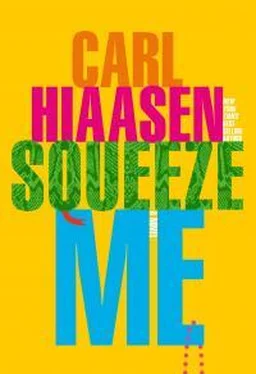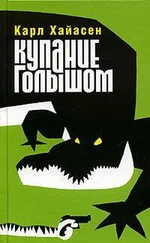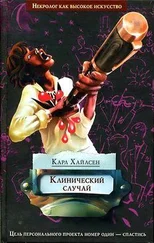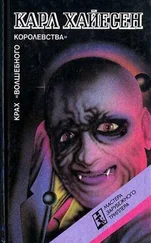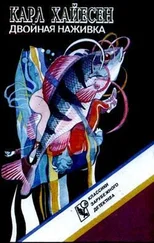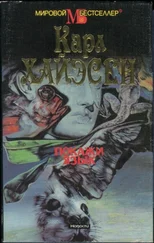As soon as Christian arrived at the hospital, he realized the gravity of the situation. The Knob was swollen and buttered with aloe, his skin as raw as carpaccio. Mastodon had scheduled a tanning session for mid-afternoon, and now there was no one to pre-test the bed. Finding a club employee the right size—and then obtaining a security clearance—would be nearly impossible on such short notice. Christian called Spalding and asked him to scout the service staff, but the search proved futile. The only fit candidate, a bartender who topped six feet, had a body odor so pungent that it posed a respiratory risk inside the tanning chamber.
So, upon returning to Casa Bellicosa, Christian—who weighed only a hundred and sixty pounds—put on three cotton bathrobes for padding, donned The Knob’s wig and eye protectors, climbed into the Cabo Royale, and closed the canopy. It was an act of courage, for Christian had been fiercely claustrophobic since the age of five, when his older sisters had put him inside a recycle bin and duct-taped the lid.
Christian was hoping that the sun lamps inside the Cabo would ease the suffocating sense of confinement, but the eerie bluish glow made him even more anxious. As the temperature rose he tightly closed his eyelids and began worrying that the goggles might melt to his face. The instant he began to hyperventilate, a familiar thrash of panic took hold. Both legs began to kick uncontrollably and the canopy flew open. Christian lay there gasping, clammy, and ripe with perspiration.
He tore off the hairpiece and hurled it across the room. Once his heart stopped hammering, he rolled out of the bed and checked the digital clock on the machine. Unbelievable—only four minutes and forty-two seconds. He felt sure his eyes were shut most of that time, yet it seemed like the sun lamps had flickered at some point.
Christian wiped down the Cabo and went outside to catch some fresh air. He sat on a chaise by the pool, toweled off the sweat, opened a Gatorade, and wondered: Did I see something, or not?
The tanning bulbs wouldn’t blink on and off unless one had loosened, or there was a wiring issue. Christian hurried back inside and, as a precaution, replaced each of the tubular lamps. When he re-started the Cabo, the lighting was uniform and constant. He decided that the flash he thought he saw must have happened in his own frenzied brainpan.
Goddamn claustrophobia.
He still hadn’t forgiven his sisters.
—
Angie went to meet the man Joel had told her about. His name was Jim Tile, and for most of his life he’d been a road trooper with the Florida Highway Patrol. Now he lived at a West Boca senior center called the Rainbow of Life. That was all Angie knew about him.
He was sitting at a table in the dining room; a wooden cane hung on an empty chair beside him. There was a foam cervical brace around his neck, though his shoulders were still broad and straight. He had thick arms and snow-white hair and tinted wire-rimmed glasses. Angie noticed he was the only black person in the place who wasn’t wearing caregiver scrubs.
She introduced herself and sat down across from him. He smiled and said he knew who she was; he’d seen her before.
“Where?” she asked.
“At your sentencing hearing.”
“Are you kidding me?”
“I was in the back row.”
“Wait. Why?”
“An old friend asked me to be there. He took an interest in your case. Want somethin’ to eat? They say the food’s decent, but I can’t taste a damn thing.” He showed her the bandaged crook of his left arm, where the morning IV attached.
She said, “I know you’re tired, Mr. Tile. I won’t stay long.”
“Doesn’t matter. I don’t sleep hardly at all.”
“How did you and Joel connect?”
“I met him in the courthouse the last day of your trial.”
“By accident, or on purpose?” Angie asked.
Tile seemed amused by her intensity. “We were both in line at the water fountain. He’s a good kid. Worries about you, naturally.”
“He says you’ve got information about the python outbreak.”
“Now there’s a fine word. ‘Outbreak,’ ” Tile said. “My friend’s the one you need to speak with, Ms. Armstrong. I’m about to tell you where he is, and how to get there.”
“And his name, too, please.”
Tile chuckled. “His actual Christian name, or what he answers to?”
“Either,” said Angie. “Or both.”
“Skink is what they call him.”
“That’s your friend? Please don’t bullshit me, Mr. Tile.”
“Young lady, do I look like a bullshitter?”
Angie knew the legend. So did every wildlife officer past and present, going back decades. She said, “Just to be clear: You’re talking about Tyree? The missing governor.”
“Yes, ma’am.”
“So he’s not dead, like they say.”
“Far from it,” said Jim Tile.
Angie hadn’t yet been born when Clinton Tyree fled the governor’s mansion in a fever of despair, later re-launching himself as a vagabond saboteur, striking out at everything he believed was going wrong in Florida. Since then, the man who became known as Skink had been blamed for many acts of eco-vengeance he didn’t commit—and had gotten away with those he did. Never was there enough evidence to prosecute, and he remained perpetually at-large, unavailable for questioning. Nothing had been heard of him for so long that those who remembered his unglued heyday assumed he must have died of old age, or heartache.
“Where’s he hiding now?” Angie asked Jim Tile.
“Tree island deep in the ’glades.” He unfolded a handmade map and placed it on the table. “I can’t draw worth a damn,” he said, tapping a long, bent finger on the paper, “but right there is downtown Miami, and way, way out here is him.”
“Does the hammock have a name?”
“Whereabouts Unknown is what he calls it.”
“Have you been there?”
“I got the GPS numbers. You’ll need an airboat.”
“That’s not a problem. What else should I bring?”
“Nerve,” said Tile.
A server brought each of them a plastic glass filled with tap water and one whole cube of ice. Angie said she wasn’t hungry; Tile ordered a pork chop, steamed broccoli, and whipped potatoes.
“And black coffee, please,” he told the server, who was young and pretty.
“She’s from Jamaica, mon, ” Tile whispered to Angie afterward. “I’m a sucker for that accent.”
For a while he talked about his late wife, how much he missed her, the last trip they took together before she got sick. A cruise to San Juan, or maybe it was Nassau. He told a story about her gaily unscripted style of cooking—a meat loaf that even the dog wouldn’t eat—and laughed until he was out of breath. Then he spoke joyfully about his daughter, who worked for the Justice Department but still called him every day. Well, almost every day. She had a law degree from Stetson…
Although Angie was in a hurry, she didn’t interrupt. She liked listening to the man, and didn’t bring up the subject of Skink again until after he’d finished eating.
“How’d you and the governor meet?” she asked.
“I was his driver in Tallahassee. Back then the FHP was in charge of security.”
Angie would have loved to hear the retired trooper’s version of what had happened in the capital that sent Clinton Tyree skidding over the edge, but she knew better than to push. Tile had been watching out for his wild, haunted friend during all the fugitive years, and he wouldn’t lower his guard now.
She asked, “How much of what I’ve heard about him is true?”
“A fraction,” Tile replied, “but that’s enough.”
“They say he wears a bat-wing eye patch and lives on road kills.”
Читать дальше
